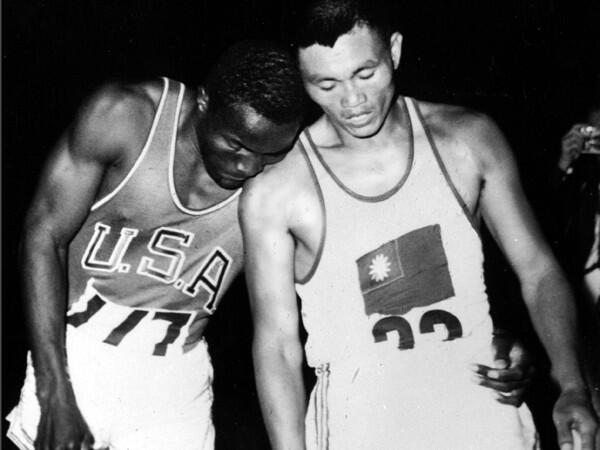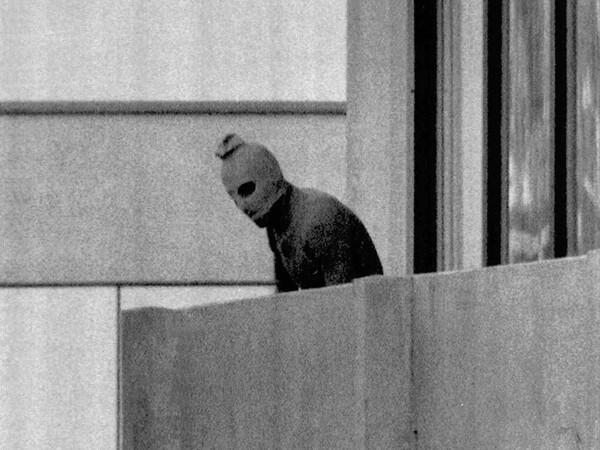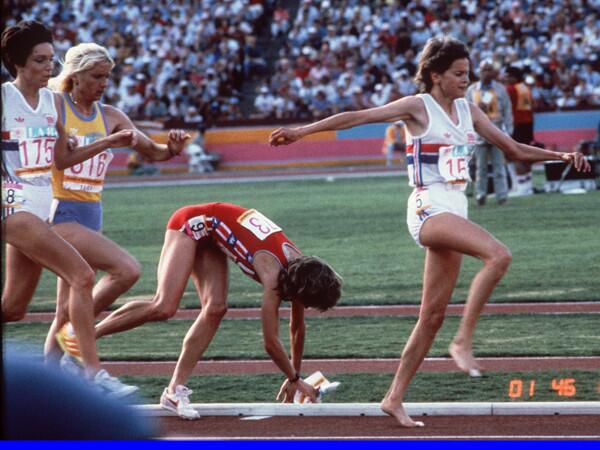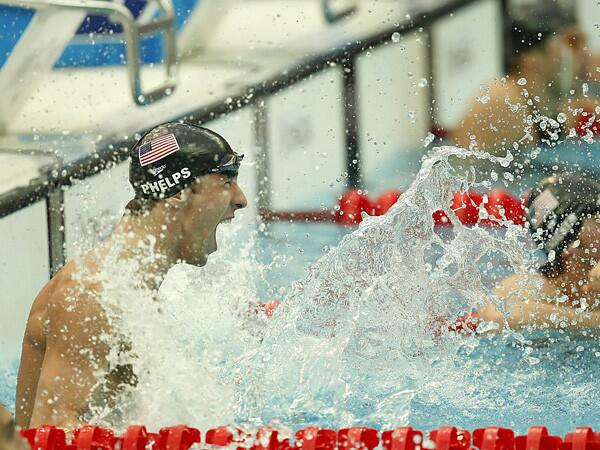Olympic Games TV moments worth remembering

CBS flew in footage from Rome to New York, where relatively unknown announcer Jim McKay did voice-over. The dream matchup was Rafer Johnson, the world-record holder in the Decathlon, and his UCLA teammate and training partner, C.K. Yang. For two days -- some events being delayed by rain -- they were one-two by far. It gave CBS a story line -- the first one in a long line of Olympic up-close-and-personals. The competition came down to the final event, the 1,500-meter run. Yang was better in the event, but Johnson was ahead in points and needed to lose by only less than 10 seconds to get the gold medal, which he did, running his fastest 1,500 meters ever. At the end, he stumbled forward and put his head on Yang’s shoulder -- a win-win-win for Johnson, Yang and CBS. (Keystone / Getty Images)

Seventeen-year-old Sean McManus was ecstatic to go with his father, Jim McKay, who had been covering Olympics for a decade, to Munich, West Germany. McKay was the gymnastics and track reporter and would have one day off in the middle to sightsee with his son. McKay took a swim and a sauna in the morning, but ABC sports chief Roone Arledge had left him a message when he returned to his room. “Arledge told Dad, ‘I don’t know exactly what is happening, but I want you on the air with it,’ ” said McManus. “It” was the taking hostage of Israeli athletes by Palestinian terrorists. Arledge passed over the main sports anchor, Chris Schenkel, and even newsman Peter Jennings, who was on the scene. “Dad had been a police reporter at the Baltimore Sun and then a news anchor in Baltimore before he came to network sports, so Roone used his gut and chose him,” said McManus. McKay was on the air for 14 hours straight, but, unfortunately, he made broadcast history just after 3 a.m. Munich time, when he said, “When I was a kid my father used to say, `Our greatest hopes and our worst fears are seldom realized. Our worst fears have been realized tonight. They have now said there were 11 hostages; two were killed in their rooms yesterday morning, nine were killed at the airport tonight. They’re all gone.” (Kurt Strumpf / AP)

The Soviet Union and 13 other Eastern Bloc nations gave payback for the American boycott of the 1980 Moscow Olympics by not showing up in Los Angeles in 1984. As if searching for another bogeyman opponent, NBC settled on South Africa, which was not allowed to compete because of its apartheid policy, so when South African distance runner Zola Budd moved to London to compete for England, the network settled on a “rivalry” with American distance runner Mary Decker. Never mind that a third woman, Romanian Maricica Puic, had a better time in their race, the 3,000 meters, than either of them. The race did not disappoint, at least in the personal-drama realm. Budd and Decker bumped three times, the last one making Decker slip and fall off the track and did not get back into the race. Budd later said that made her embarrassed, especially after the L.A. crowd started booing her. She came in seventh. (Hiram Clawson / Los Angeles Times)

Michael Phelps was a built-in star coming into the Summer Games in Beijing, since he had won six gold medals in the 2004 Athens Games. But even then he surpassed expectations. In his first six events, Phelps not only won gold medals but set world records. It was a foregone conclusion that his eighth event, the 4-by-100 medley relay, would produce a gold and a probable world record, so all that was left was the 100 butterfly. “This was where TV would show its best, since a mere description would never have worked,” said McManus. Phelps was behind the Serbian Milorad Cavic going into the final stretch, but he shortened one stroke while Cavic stayed in his longer form and touched the wall a mere one-one-hundredth of a second sooner. It was the only race in Beijing where Phelps did not set a world record, but his eight golds sealed him as a celebrity. (Robert Gauthier / Los Angeles Times)



